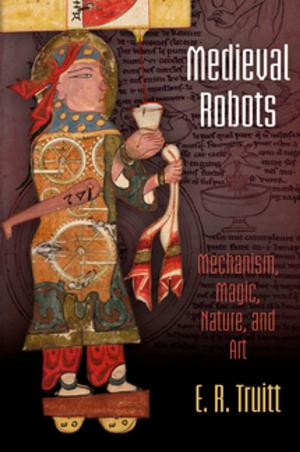The Decadent Republic of Letters
Taste, Politics, and Cosmopolitan Community from Baudelaire to Beardsley
Fiction & Literature, Literary Theory & Criticism, French, European| Author: | Matthew Potolsky | ISBN: | 9780812207330 |
| Publisher: | University of Pennsylvania Press, Inc. | Publication: | October 15, 2012 |
| Imprint: | University of Pennsylvania Press | Language: | English |
| Author: | Matthew Potolsky |
| ISBN: | 9780812207330 |
| Publisher: | University of Pennsylvania Press, Inc. |
| Publication: | October 15, 2012 |
| Imprint: | University of Pennsylvania Press |
| Language: | English |
While scholars have long associated the group of nineteenth-century French and English writers and artists known as the decadents with alienation, escapism, and withdrawal from the social and political world, Matthew Potolsky offers an alternative reading of the movement. In The Decadent Republic of Letters, he treats the decadents as fundamentally international, defined by a radically cosmopolitan ideal of literary sociability rather than an inward turn toward private aesthetics and exotic sensation.
The Decadent Republic of Letters looks at the way Charles Baudelaire, Théophile Gautier, and Algernon Charles Swinburne used the language of classical republican political theory to define beauty as a form of civic virtue. The libertines, an international underground united by subversive erudition, gave decadents a model of countercultural affiliation and a vocabulary for criticizing national canon formation and the increasing state control of education. Decadent figures such as Joris-Karl Huysmans, Walter Pater, Vernon Lee, Aubrey Beardsley, and Oscar Wilde envisioned communities formed through the circulation of art. Decadents lavishly praised their counterparts from other traditions, translated and imitated their works, and imagined the possibility of new associations forged through shared tastes and texts. Defined by artistic values rather than language, geography, or ethnic identity, these groups anticipated forms of attachment that are now familiar in youth countercultures and on social networking sites.
Bold and sophisticated, The Decadent Republic of Letters unearths a pervasive decadent critique of nineteenth-century notions of political community and reveals the collective effort by the major figures of the movement to find alternatives to liberalism and nationalism.
While scholars have long associated the group of nineteenth-century French and English writers and artists known as the decadents with alienation, escapism, and withdrawal from the social and political world, Matthew Potolsky offers an alternative reading of the movement. In The Decadent Republic of Letters, he treats the decadents as fundamentally international, defined by a radically cosmopolitan ideal of literary sociability rather than an inward turn toward private aesthetics and exotic sensation.
The Decadent Republic of Letters looks at the way Charles Baudelaire, Théophile Gautier, and Algernon Charles Swinburne used the language of classical republican political theory to define beauty as a form of civic virtue. The libertines, an international underground united by subversive erudition, gave decadents a model of countercultural affiliation and a vocabulary for criticizing national canon formation and the increasing state control of education. Decadent figures such as Joris-Karl Huysmans, Walter Pater, Vernon Lee, Aubrey Beardsley, and Oscar Wilde envisioned communities formed through the circulation of art. Decadents lavishly praised their counterparts from other traditions, translated and imitated their works, and imagined the possibility of new associations forged through shared tastes and texts. Defined by artistic values rather than language, geography, or ethnic identity, these groups anticipated forms of attachment that are now familiar in youth countercultures and on social networking sites.
Bold and sophisticated, The Decadent Republic of Letters unearths a pervasive decadent critique of nineteenth-century notions of political community and reveals the collective effort by the major figures of the movement to find alternatives to liberalism and nationalism.















